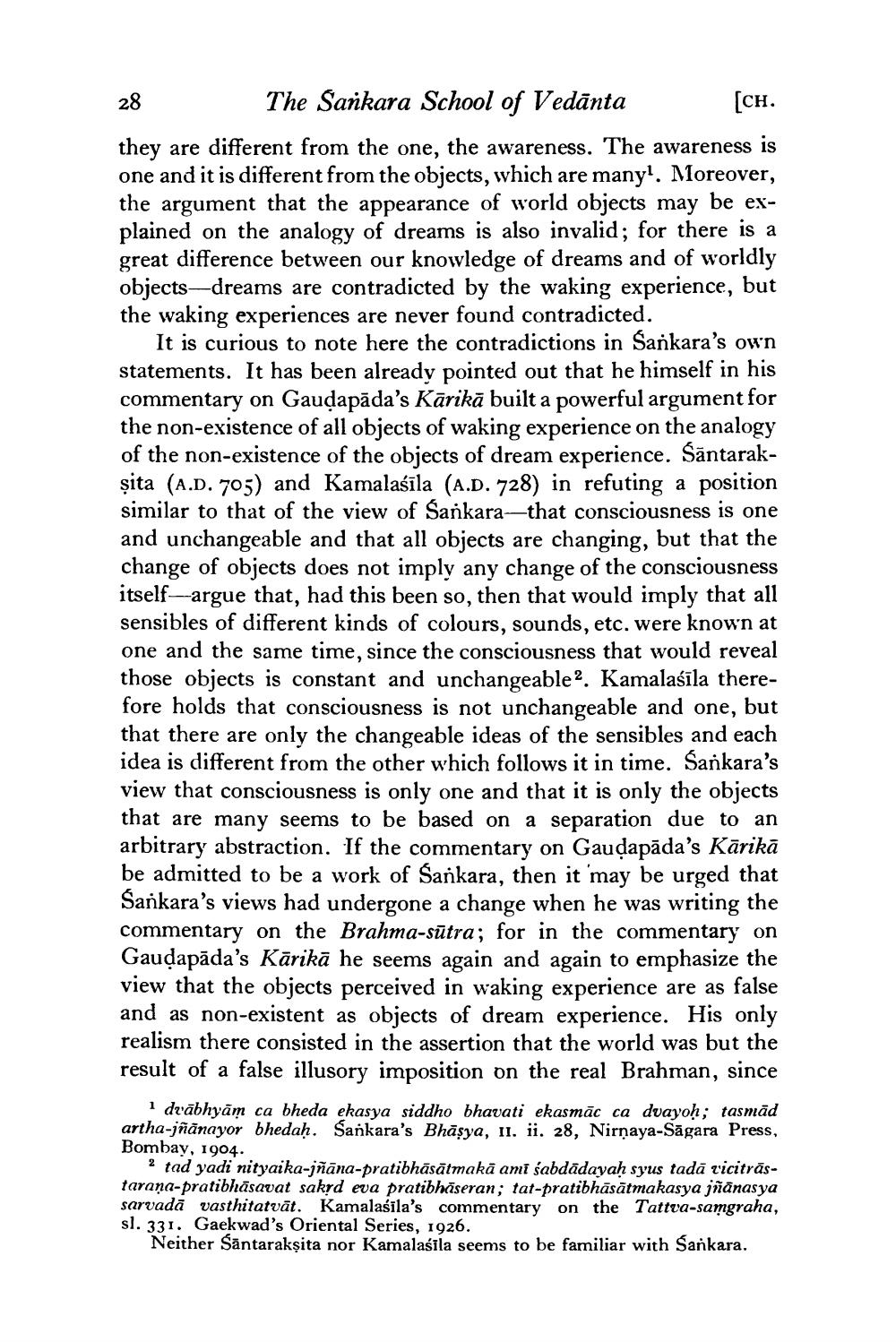________________
28
The Sankara School of Vedānta [ch. they are different from the one, the awareness. The awareness is one and it is different from the objects, which are many'. Moreover, the argument that the appearance of world objects may be explained on the analogy of dreams is also invalid; for there is a great difference between our knowledge of dreams and of worldly objects-dreams are contradicted by the waking experience, but the waking experiences are never found contradicted.
It is curious to note here the contradictions in Sankara's own statements. It has been already pointed out that he himself in his commentary on Gaudapāda's Kārikā built a powerful argument for the non-existence of all objects of waking experience on the analogy of the non-existence of the objects of dream experience. Sāntarakșita (A.D.705) and Kamalaśīla (A.D. 728) in refuting a position similar to that of the view of Sankara—that consciousness is one and unchangeable and that all objects are changing, but that the change of objects does not imply any change of the consciousness itself-argue that, had this been so, then that would imply that all sensibles of different kinds of colours, sounds, etc. were known at one and the same time, since the consciousness that would reveal those objects is constant and unchangeable?. Kamalaśīla therefore holds that consciousness is not unchangeable and one, but that there are only the changeable ideas of the sensibles and each idea is different from the other which follows it in time. Sankara's view that consciousness is only one and that it is only the objects that are many seems to be based on a separation due to an arbitrary abstraction. If the commentary on Gaudapāda's Kārikā be admitted to be a work of Sankara, then it may be urged that Sankara's views had undergone a change when he was writing the commentary on the Brahma-sūtra; for in the commentary on Gaudapāda's Kārikā he seems again and again to emphasize the view that the objects perceived in waking experience are as false and as non-existent as objects of dream experience. His only realism there consisted in the assertion that the world was but the result of a false illusory imposition on the real Brahman, since
dvābhyām ca bheda ekasya siddho bhavati ekasmāc ca dvayoh; tasmād artha-jñānayor bhedah. Sankara's Bhāsya, II. ii. 28, Nirnaya-Sāgara Press, Bombay, 1904.
2 tad yadi nityaika-jñāna-pratibhāsātmakā ami śabdādayah syus tadā vicitrāstarana-pratibhāsavat sakrd eva pratibhāseran; tat-pratibhāsātmakasya jñānasya sarvadā vasthitatvāt. Kamalasila's commentary on the Tattva-samgraha, sl. 331. Gaekwad's Oriental Series, 1926.
Neither Sāntarakṣita nor Kamalaśīla seems to be familiar with Sankara.




